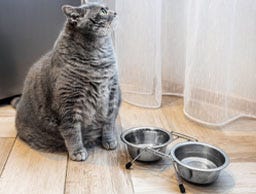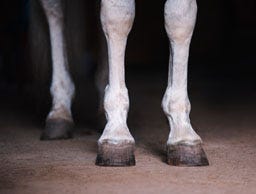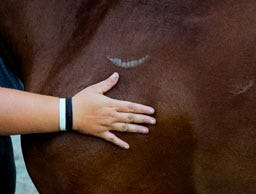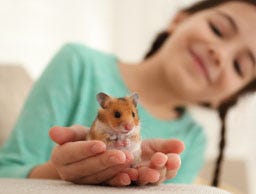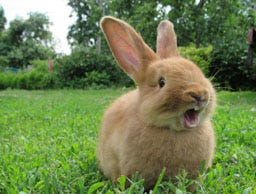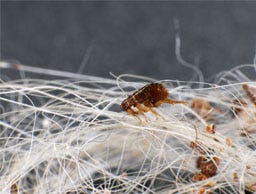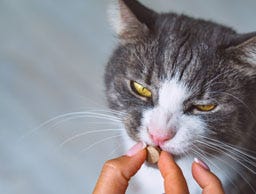A Guide to Rabbit Dental Care
Whether your pet is big or small, they all need love and care just the same. In this blog, we discuss how you can effectively care for your rabbits teeth, including how to check their teeth, signs that something is wrong, and what to do if your rabbit suffers from either gum disease or overgrown teeth.
How Many Teeth Do Rabbits Have?
One of the most defining features of any small pet, rodents and rabbits alike, is those big square front teeth, but what many people don’t realise is Rabbits actually have 28 teeth in total. These teeth include
- 4 long incisors - 2 on the top and 2 on the bottom, which are used for snipping grass or other vegetation.
- 2 “peg teeth” - behind the top incisors which aid their incisors in shearing vegetation.
- 11 premolars and molars - 6 on the top and 5 on the bottom, which grinds up vegetation so it can be swallowed.
How to Check Your Rabbit’s Teeth
The premolars and molars are too far back in your rabbit's mouth to be checked easily and so should be left for your veterinary professional to do during your rabbit’s yearly health check.
Their front teeth (the incisors), however, should be checked at least weekly to ensure they’re in good condition. This can be done by gently holding them facing away from you when they’re calm and gently parting their lips to reveal their teeth.
When you can see their teeth, check:
- Their top and bottom teeth are meeting properly in the middle
- Their teeth are not loose
- That their gums are pink and healthy.
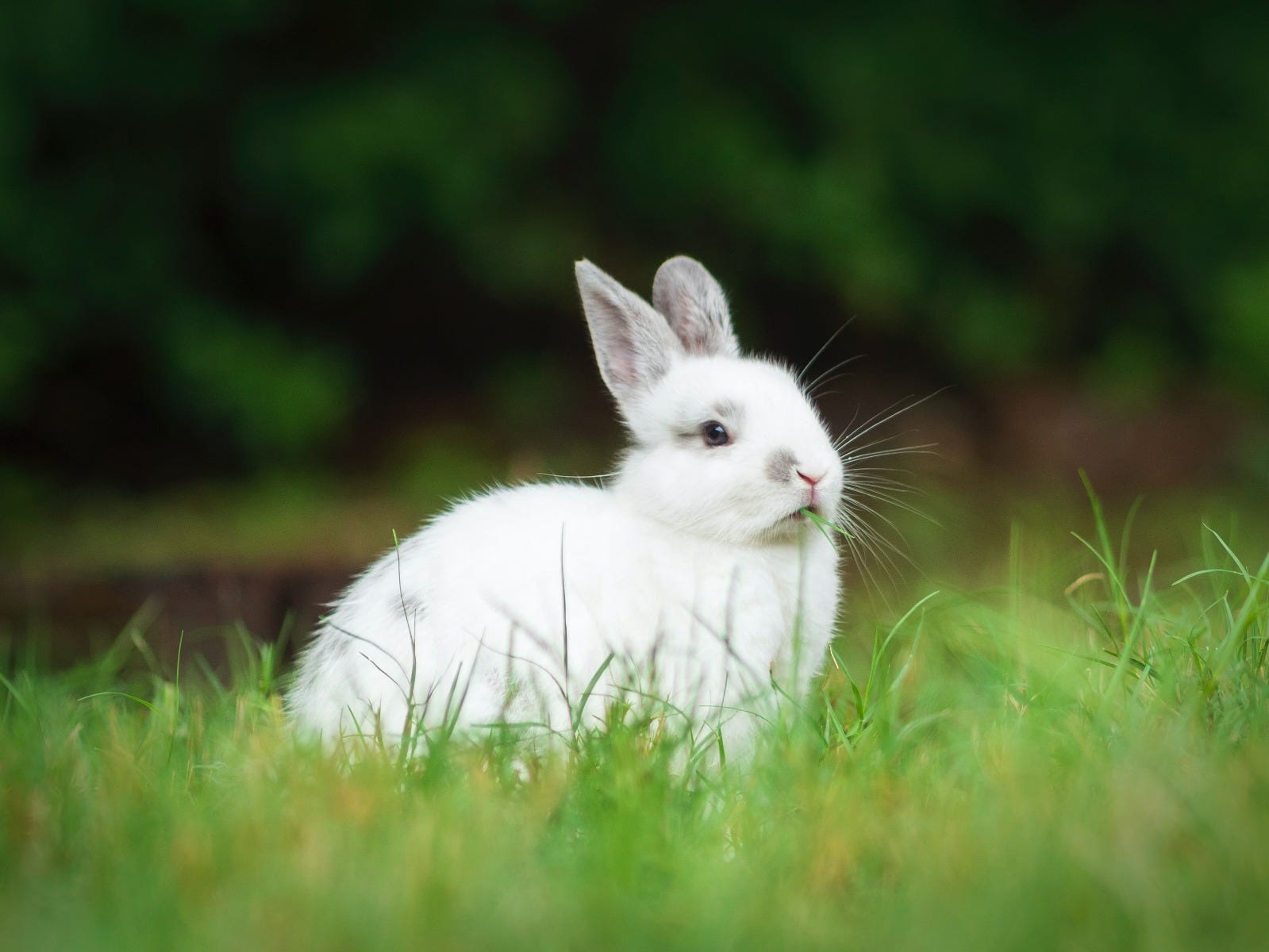
Do Rabbit Teeth Keep Growing?
Rabbit teeth are hypsodontic, which means they are continuously growing throughout your rabbit’s life. While this is perfectly natural, it does mean that rabbits and other rodents, such as guinea pigs and rats, are also prone to a number of different dental conditions if they’re unable to grind their teeth down to an appropriate length.
Overgrown Rabbit Teeth
When a rabbit is unable to properly wear their teeth down, or their top and bottom jaw are misaligned (a condition known as malocclusion), they can soon become overgrown. Overgrown teeth can affect any of the teeth in your rabbit's mouth, not just the incisors.
Not only do overgrown rabbit teeth prevent your rabbit from being able to eat properly, or at all, as well as hurting your rabbit as the teeth begin to curve and can get caught on things such as wire mesh in hutches and runs or cage bars, or can grown into their gums and mouth which can be incredibly painful for them.
A visual check of your rabbit’s incisors is usually enough for you to notice if they are becoming overgrown, as they won't meet properly in the middle, whereas the back teeth are harder to tell. As prey animals, rabbits don’t tend to show many signs that they’re in pain or ill, but there are some symptoms you should keep an eye for, such as:
- Drooling
- Difficulty eating
- Bad breath
- Behavioural changes
If you notice any of these signs or can see your rabbit’s teeth are overgrown, you need to contact your vet immediately. Overgrown teeth need to be trimmed down by a veterinary professional while the animal is under anaesthetic.
Preventing Overgrown Rabbit Teeth
While overgrown teeth in rabbits can vary in severity, there are a number of ways you can help prevent it from occurring, such as:
- Regularly checking their teeth (at least weekly)
- Feeding them an appropriate rabbit food diet full of grass, leafy veggies and hay to help mimic their diet in the wild.
- Providing plenty of chewable toys and gnaw sticks to encourage their natural chewing instincts and help them keep their teeth worn down.
Dental Disease in Rabbits
As well as overgrown teeth, rabbits can also suffer from other dental diseases, such as dental abscesses and gum disease, which can be incredibly painful for your rabbit and significantly impact their well-being. An insufficient diet most commonly causes these diseases, so choosing the right food for your rabbit is essential. You can learn more about what makes a suitable rabbit diet in our guide to rabbit care below.
As we’ve mentioned above, checking your rabbit’s teeth regularly is essential to ensuring everything is in working order, especially since rabbits don’t like to show when they’re in pain. As well as making sure their teeth are the proper length, make sure their gums look healthy and pink, not red or inflamed as well as monitoring their usual behaviour for other symptoms of illness like:
- Lack of appetite
- Dropping food
- Excessive drooling and wet faces or front legs
- Facial swelling
- Rubbing their face
- A lack of grooming, particularly around their tail and rear end.
How to Care For your Rabbit’s Teeth
As we’ve said above, caring for your rabbit’s teeth is a key part of rabbit ownership and any signs of problems should be followed by a vet consultation, as many rabbit illnesses aren’t noticed until symptoms are shown, which may be too late.
Remember, the best ways to care for your rabbit’s teeth are:
- Weekly checks of their front teeth and gums
- Feeding an appropriate and fibre-rich diet
- Providing plenty of toys for them to chew and gnaw
- Having their teeth checked by a vet once a year
By following these rabbit dental care tips, you can make sure your bunny is running, hopping and binking to their heart's content.
If you would like to learn more about how to care for your rabbit or for advice on choosing the best food for your rabbit, get in touch with us today, and a member of our friendly team will be happy to help.
 This post is an opinion and should only be used as a guide. You should discuss any change to your pet’s care or lifestyle thoroughly with your vet before starting any program or treatment.
This post is an opinion and should only be used as a guide. You should discuss any change to your pet’s care or lifestyle thoroughly with your vet before starting any program or treatment.













